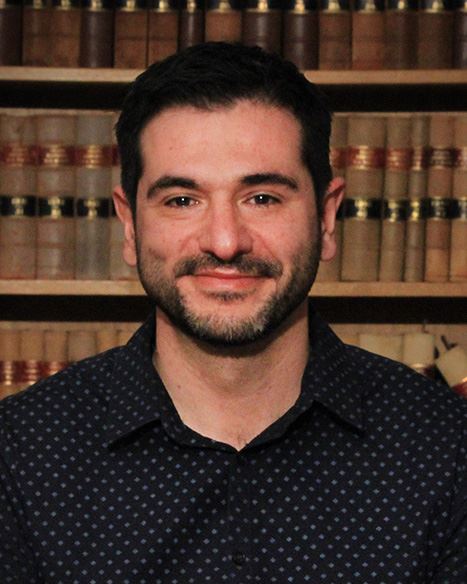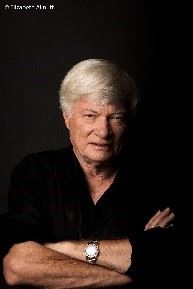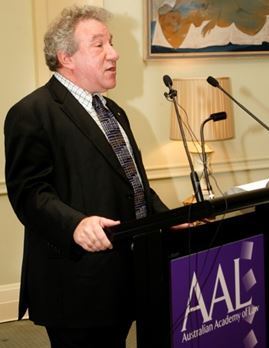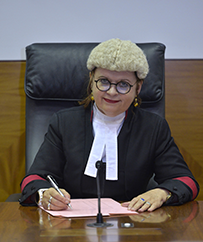- Home
- Fellow Spotlight
- 2021 Fellow Spotlight
2021 Fellow Spotlight
Making Commercial Law Through Practice 1830 - 1970 Ross Cranston London School of Economics and Political Science This book is published by Cambridge University Press and can be found here Making Commercial Law Through Practice 1830–1970 adds a new dimension to the history of Britain's commerce, trade manufacturing and financial services, by showing how they have operated in law over the last one hundred and forty years. In the main law and lawyers were not the driving force; regulation was largely absent; and judges tended to accommodate commercial needs, so that market actors were able to shape the law through their practices. Using legal and historical scholarship, the author draws on archival sources previously unexploited for the study of commercial practice and the law's role in it. This book will stimulate parallel research in other subject areas of law. Modern commercial lawyers will learn a great deal about the current law from the story of its evolution, and economic and business historians will see how the world of commerce and trade operated in a legal context | 16 December 2021 |
Pandemics, Public Health Emergencies and Government Powers Perspectives on Australian Law Edited by Belinda Bennett and Ian Freckelton The book is published by Federation Press and can be found here This book explores the multi-layered and multi-faceted ways in which Australia’s laws, regulations and law-makers have engaged with the COVID-19 pandemic. What emerges from the 21 chapters from leading scholars in this edited collection is that there have been both successes and failures. The virus keeps evolving and we as a nation need to continue to learn from international developments and what has, and has not, worked in Australia. Law is an integral part of the public health framework that protects the community during a pandemic. A significant component of Australia’s legal response to COVID-19 has been to give extensive powers to State and Territory governments to manage the crisis. This has involved imposition of limits on individuals’ rights and liberties in relation to quarantine arrangements, border control, lockdowns, curfews and face masks, as well as requirements to use QR codes. At times these measures have been controversial, both legally and within the general community. Our workplaces, our clinical services, our research processes and our legal system will emerge changed after COVID-19 . This requires ongoing evaluation and reflection. Pandemics, Public Health Emergencies and Government Powers: Perspectives on Australian Law is a constructive early contribution to this end. | 17 September 2021 |
Judicial Federalism in Australia History, Theory, Doctrine and Practice The book is published by Federation Press and can be found here The Australian High Court has implied from Chapter III of the Constitution significant protections for judicial independence and fair trial processes. In the last 25 years, these protections have been extended to the judiciaries of the Australian States with often-overlooked consequences for the operation of the Australian federation. Chapter III protections perform an important role in safeguarding individual liberties in a system largely bereft of constitutional rights protections. But they have also frustrated, or mandated substantial amendment to, a number of legislative initiatives. Unsurprisingly then, Chapter III is the site of significant constitutional disagreement. Australia’s second century has heralded heightened tension between governments and the courts over the proper scope of the limitations derived from Chapter III. These limits are some of the most dynamic in Australian constitutional law. To inform and illuminate these ongoing debates, Judicial Federalism in Australia: History, Theory, Doctrine and Practice will provide a holistic analysis of the federal influence of Chapter III. It considers the historical underpinnings of the Chapter, tracing its development from the colonial justice system through the convention debates and into the first years of Federation. It then provides an overview of the theoretical and doctrinal development of Australia’s Chapter III jurisprudence as it relates to the States and Territories and how it has affected the operation of the federation. Finally, the book will provide, for the first time, an empirical study of the effect of the Court’s Chapter III jurisprudence on the development of State and Territory policies, focusing on anti-organised crime initiatives, the introduction of administrative super tribunals and specialist courts such as drug courts and Indigenous sentencing courts. |
| 10 August 2021 |
Who Owns History, and Bad People and How to be Rid of Them Both books published by Penguin Random House and can be found here In Who Owns History - Elgin's Loot and the Case for Returning Plundered Treasure, Robertson argues that cultural property wrongfully taken by colonising armies should be returned and he devises an international convention for this purpose. Part of the book sets out the case against the British Museum, "the world's greatest receiver of stolen property", which he says should not only return the Parthenon Marbles but also the Gweagal shield dropped by an indigenous warrior at whom Captain Cook shot - and may have killed - when he landed at Botany Bay. In his most recent book, Bad People - and How to be Rid of Them - A Plan B for Human Rights, Robertson argues that "Plan A" for dealing with murderous despots - the International Criminal Court - has not worked because of a “pole-axed” United Nations Security Council. Instead, Robertson recommends a targeted sanctions regime which will name, blame and shame human rights violators, freeze their assets and stop them - and their parents and children- from accessing schools and hospitals in the West. Thirty one countries have these so called “Magnitsky laws”. His book explains their origin and purpose and why Australia should have one. |
| 22 July 2021 |
|
| 13 July 2021 |
The Constitution of the Australian Capital Territory This book is published by Federation Press and can be found here. The Constitution of the Australian Capital Territory is a book by Justice David Mossop that provides a detailed reference work for the understanding of the constitutional arrangements that exist for the government of the Australian Capital Territory. It provides an outline and explanation of the Commonwealth laws which make up the constitution of the Australian Capital Territory, most importantly the Australian Capital Territory (Self-Government) Act 1988 (Cth). |
| 6 July 2021 |
Making Law in Papua New Guinea This book is published by Carolina Academic Press and the link can be found here. In the waning days of colonialism in Papua New Guinea, much of the rhetoric from local leaders pushing for self-determination focused on replacing the imposed colonial legal system with one that reflected local customs, understandings, relationships, and dispute settlement techniques—in other words, a "uniquely Melanesian jurisprudence." After independence in 1975, however, that aim faded or began to be seen as an impossible objective, and PNG is left with a largely Western legal system. In this book, the authors—who were all directly involved in law teaching, law reform, and judging during that period—explore the potent and enduring grip of colonialism on law and politics long after the colonial regime has been formally disbanded. Combining original historical and legal research, engagement with the scholarly literature of dependency theory and postcolonial studies, and personal observation, interviews, and experience, Making Law in Papua New Guinea offers compelling insights into the many reasons why postcolonial nations remain imprisoned in colonial laws, institutions, and attitudes. |
| 2 July 2021 |
Judges, Technology and Artificial IntelligenceThe book is published by Edward Elgar Publishing, the link can be found hereAs technological developments reshape how society functions, courts and judges are grappling with how technology will change how justice takes place within the judicial system. From exploring how supportive technologies have shifted in the COVID era, to examining how replacement technologies are leading to online court reforms, there are questions about how judges are engaged in technological reforms that impact on the judicial role and function. Newer technologies can require judges to consider how algorithms and other material generated by technologies can have an impact in individual cases. By exploring international commentary by judges and scholars as well as material on ethics and justice system design, this new book also explores how artificial intelligence (AI) will impact on judicial systems of the future and the changing role of judges in democratic societies as ‘guardians of justice’. Notably, there is discussion about judicial creativity and novelty as well as the desirability of ‘radical’ or ‘incremental’ reform in courts. The cover of the book features an artwork created by AI which is linked to an in depth discussion about judicial creativity, the value of dissent, as well as some proposals about the future limits of Judge AI. |
| 2 June 2021 |
The Judge, the Judiciary and the CourtIndividual, Collegial and Institutional Judicial Dynamics in Australia Edited by Gabrielle Appleby, University of New South Wales, Andrew Lynch, University of News South Wales, Sydney The book is published through Cambridge University Press here The Judge, the Judiciary and the Court is aimed at anyone interested in the Australian judiciary today. It examines the impact of the individual on the judicial role, while exploring the collegiate environment in which judges must operate. This professional community can provide support but may also present its own challenges within the context of a particular court's relational dynamic and culture. The judge and the judiciary form the 'court', an institution grounded in a set of constitutional values that will influence how judges and the judiciary perform their functions. This collection brings together analysis of the judicial role that highlights these unique aspects, particularly in the Australian setting. Through the lenses of judicial leadership, diversity, collegiality, dissent, style, technology, the media and popular culture, it analyses how judges work individually and as a collective to protect and promote the institutional values of the court |
| 25 May 2021 |
The role of punishment in private law is controversial, and the dominance of the compensatory paradigm has tended to deflect attention away from difficult questions that arise in this regard. This volume aims to redress this imbalance. It examines instances or potential instances of punishment in private law. In doing so, it engages with complex debates such as whether private law ought to be an engine of punishment and, if so, how and when punishment should be dispensed. The chapters span the full width of private law, and are written by leading scholars drawn from a range of jurisdictions. This collection brings together a team of outstanding scholars from across the common law world to explore the treatment of misleading silence in private law doctrine and theory. Whereas previous studies have been contractual in focus, here the topic is explored from across the full spectrum of private law. Its approach encompasses equitable and common law principles, as well as taking an integrated approach to key statutory regimes. The highly original contributions draw on rich theoretical, historical, comparative, cross-disciplinary and doctrinal perspectives. This is truly a landmark publication in private law, with no counterpart in the common law world. |
| 14 May 2021 |
Criminal Laws Northern Territory 3rd Edition By Stephen Gray, Jenny Blokland, Ben Grimes and Julian R Murphy The book is published by Federation Press and can be found here This is the third edition of a unique Australian criminal law textbook. The book is unusual among criminal law textbooks because of its attention to the history of the criminal law, and to Indigenous legal issues, to which it devotes specific chapters. It also pays significant attention to criminal procedure, as well as sentencing – both areas not generally dealt with in standard texts, but of great use particularly to practitioners. |
| 14 April 2021 |














